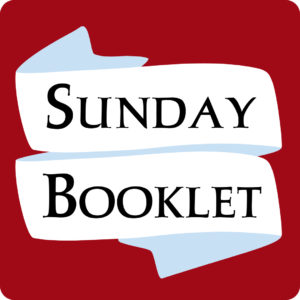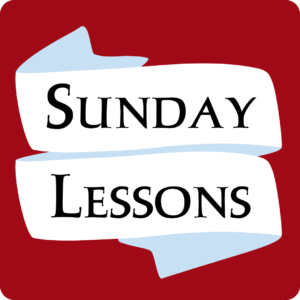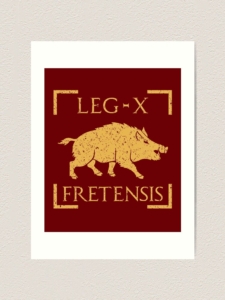Worship Guide for June 22, 2025
During June, July, we will have one service on Sundays at 9am.
Like TV Guide, but from God! Find the text of the Prayers of the People and Sermon below. Use the buttons provided to find other worship materials.
To see the Worship Guide for other weeks, click here.
To see the Book of Common Prayer online, click here.
Prayers
Weekly Prayer Recording:
Prayers of the People:
Second Sunday after Pentecost,
June 22, 2025
The response to the bidding, “Living Lord”, is “hear us.”
Lord, we ask for a spirit of courage and persistence to hold fast to the hope that is within us in a world increasingly deaf to the values and expectations of your kingdom. Living Lord, hear us
Liberating God, on this Juneteenth weekend, as we remember the arrival of the joyful news of freedom to the enslaved, we pray that we will ultimately live into the ideals of equality and liberty envisioned by our country’s founders. Living Lord, hear us.
Lord, in a time of increasing threat of political violence at home and war abroad, make us instruments of your peace. Living Lord, hear us
In a time when violent words fan violent actions, we pray for the Congress and the courts to uphold the integrity of the Constitution and protection of those who defend the rule of law. Living Lord, hear us
We pray for the Church and her life: Sean, Presiding Bishop, and for Nicholas, our bishop; for Hosam, the Archbishop of Jerusalem; for Pope Leo; for Bartholomew, the Ecumenical Patriarch; we pray for a witness and commitment to service among all Christian leaders. Living Lord, hear us
In a world of increasingly pressing needs, we ask you to forgive our silent complicity in the war crimes being perpetrated upon the helpless people of Gaza and the ethnic cleansing of Palestinian communities in the West Bank. As war escalates in the region, we pray for peace with justice to come to the Middle East.
We continue to pray for a negotiated peace in Ukraine that honors a commitment to Ukrainian sovereignty and future self-determination.
We pray for an end to the civil wars in Sudan, Yemen, and Myanmar. For all forced to flee from their homes and homelands by the violence of war and threats to life and livelihood. Living Lord, hear us
We remember the Earth and the threat of climate change, praying for the strengthening of emergency services and necessary infrastructure to meet the challenge of climate instability. At the beginning of a predicted summer worsening of climate turbulence, we remember communities in the path of wind, fire, and flood. Living Lord, hear us.
We pray for all in need and in trouble: for those whose strength is failing through ill health; whose spirits are flagging through depression; whose determination is being sapped through addiction; that they might know God’s comforting presence and healing. Living Lord, hear us.
We remember with love those who have asked for our solidarity in prayer: Carol, Mary, Sam, Benjamin, Stefan, Randall, Rosalind, Dan, for the striking workers at Butler Hospital, and others we name [pause]. Living Lord, hear us
We pray for our own needs, together with those nearest and dearest to us, remembering especially those celebrating birthdays last week: Mike Robey; and this week: Linda Brookhart, Tom May, Jill Scott, Katie Cottone, and Peter Fuller.
The flowers this morning are given by Mrs. Lucia Outlan and Mrs. Marilyn Jacobs in celebration of the marriage of Goodwin Burgess to Tyler Matz yesterday here at St. Martin’s Church. Living Lord, hear us
Surrounded by so great a cloud of witnesses, we remember those we love but see no longer, especially those we name [pause]. And we pray for all who grieve. Living Lord, hear us
Sermon
Messy
The Reverend Linda Mackie Griggs
Second Sunday after Pentecost
Proper 7
Luke 8: 26-39
Psalm 43
1 Kings 19: 1-15a
The Church’s Liturgical Calendar has cycled once again to Ordinary Time—the period that more or less follows the flurry of activity from Christmas through Trinity Sunday, and which extends all the way to Advent (with a break for All Saints). But while the Church observes its Ordinary Time, I have to confess that things don’t feel very ordinary to me. I mean, when the word “unprecedented” is used correctly, not just hyperbolically, to describe most of a week’s headlines, we know that the times we are in are anything but ordinary.
One of our psalms for today says:
Why are you so full of heaviness, O my soul? *
and why are you so disquieted within me?
It’s safe to say that many folks who come through our doors these days are feeling the weight of the world; if not for themselves, then they are seeing it in others. None of us are untouched by worry and its many friends and relatives. So perhaps when we hear the voice speaking to Elijah, “What are you doing here?”, we sit in the pew and hear it speak to us. Why are we here? For comfort, perhaps; for time spent in the presence of God–comfort found in prayer, music, sacrament, and fellowship. All of these things.
But I hope it’s not just for comfort, because in these extraordinary days the church needs to be more than just a place of comfort. In one of the Eucharistic prayers (which we will begin using in a couple of weeks) we pray not just for solace, but for strength, and not just for pardon, but for renewal. And this means that when we come through those red doors bearing the weight of the world on our shoulders, we can lay that weight down for at least long enough to become better equipped to take it up again—better equipped to become part of the healing and reconciliation we desire. And knowing that we do not carry our burden alone.
To that end, today I’m going to begin by telling you a story.
According to the Roman-Jewish historian Josephus, in the late 60’s, near the end of the Jewish War, the Roman General Vespasian sent soldiers to retake a section of territory east of the Jordan River. The attack was brutal, a thousand young men died, their families were imprisoned, and the city burned to the ground.
That city was Gerasa. The territory around it was known as the region of the Gerasenes. Many of the slaughtered in Vespasian’ s attack were buried in tombs in the area.
Another small story: Let’s travel west, back across the Jordan, a year or two later. The Tenth Roman Legion was part of the siege and destruction of Jerusalem and the Temple—a trauma that has resonated for the Jewish community for millennia. The Tenth Legion’s emblem? A wild boar. A pig.
Furthermore, if we’ve read today’s Gospel story from Luke in Greek (not impossible for some here), we would know that the vocabulary Luke used for terms such as “seized” and “bound with chains and shackles”, was used elsewhere in Luke and Acts to connote military conflict and authoritarian actions. “In short,” says commentator Judith Jones, “the language of the whole episode evokes the experience of living under a brutal occupying power.”
So if we are Luke’s first century audience, we are not simply hearing a cut-and-dried tale of a showdown between the Messiah and a host of supernatural demons (although there is plenty to be mined from that perspective.) The vocabulary and the evoked traumatic history were intended to conjure a horrific memory/image of Roman tyranny, of the earthly principalities and powers of the day. And it is these principalities and powers that Jesus symbolically confronts in this story; these are the demons he faces.
“What is your name?”
“Legion.”
Authoritarianism. Callousness. Greed. Brutality. Cruelty. Empire.
“Legion.”
Biblical storyteller Richard Swanson, who does his own translations of the texts, has observed something intriguing about the description of Jesus as he faces off with the demons who have possessed the poor naked man in fetters among the tombs. Whereas most English translations read, “Jesus had commanded the unclean spirit to come out of the man,” Luke’s Greek uses the imperfect tense of ongoing action: “He kept commanding to the unclean breath that he come out from the person.”
The difference is important. In the English, if it says, “Jesus had commanded”, then the implication is that Jesus quickly accomplished the exorcism. Whereas “he kept commanding” the spirits meant that it wasn’t as easy as we might expect of the Son of God. Which is interesting. Swanson says,
“Customary interpretation generally notes the ease with which the messiah conquers demons. This is understood to be theologically significant because it confesses God’s Ultimacy.
Sure.
But I have become suspicious that such theological certainty is founded (at least in part) on the comfort that comes with privilege. When we tell miracle stories, stories in which God steps in and makes things right, we are telling stories about the way the world should be.”
In other words, when we always expect God to fix things miraculously, we are letting ourselves off the hook. We’re seeing a world that doesn’t challenge us to do the work of healing and reconciling because really, God’s got this. And this can be the tough part, because faith means that we do believe that “God’s got this”, but in ways that we don’t always understand (or even agree with.) But this doesn’t mean that we aren’t called—mandated, even—to serve, to heal, to love, to confront, to struggle for the world we envision in the face of the world as it is.
Jesus struggled with Legion. He ultimately prevailed, but the resolution wasn’t pretty. Cast into pigs, the demons are destroyed, but at what cost? And for whom?
The formerly tormented man, finally clothed and at peace, sits at Jesus’ feet. Jesus will return him to his community to proclaim the works of his healer. But what of the community itself? Will it welcome the man back? And what of the livelihood of the swineherds?
Then all the people of the surrounding country of the Gerasenes asked Jesus to leave them; for they were seized with great fear.
Not just afraid, but “seized” with fear. There’s that evocation of Roman domination again. Jesus has vanquished the demons in the tormented man, but the specter of his continuing struggle with the demons of principalities and powers will remain—for the rest of his life. He and his disciples return to Galilee to continue their work.
It is a messy story.
And that’s what makes it valuable for us. We’re not left just to ponder a healing miracle. We’re invited and challenged to ponder the cost of following the Way of Jesus; of facing our own anxiety about confronting those seized by their fear of the radical compassion of the Dream of God; those who prefer the status quo to the transformation that Jesus offers.
Even if that status quo means that demons continue to torment the innocent and the vulnerable.
We’re in messy, extra-ordinary times. The cries of the innocent, the vulnerable, and the marginalized break the hearts of those with eyes to see and ears to hear, and beg us to remember that the Latin for “heart” is the root of the word, “courage.” And as Anne Lamott says, “Courage is fear that has said its prayers.”
Returning to today’s psalm, which ends:
Put your trust in God; *
for I will yet give thanks to him,
who is the help of my countenance, and my God.
Why are we here today? For comfort and solace, yes; and for courage, nourished by Word, Sacrament, and Community. We are here to be reminded that we can trust in God’s (sometimes aggravatingly) mysterious ways, and that we find strength in the Divine presence with us as we do the work we are called to do. Because I have to disagree with our Old Testament storyteller today; God is not just in the silence. God is in the earthquake, in the wind, and in the fire; God is with us through all of it, no matter how messy it gets.





